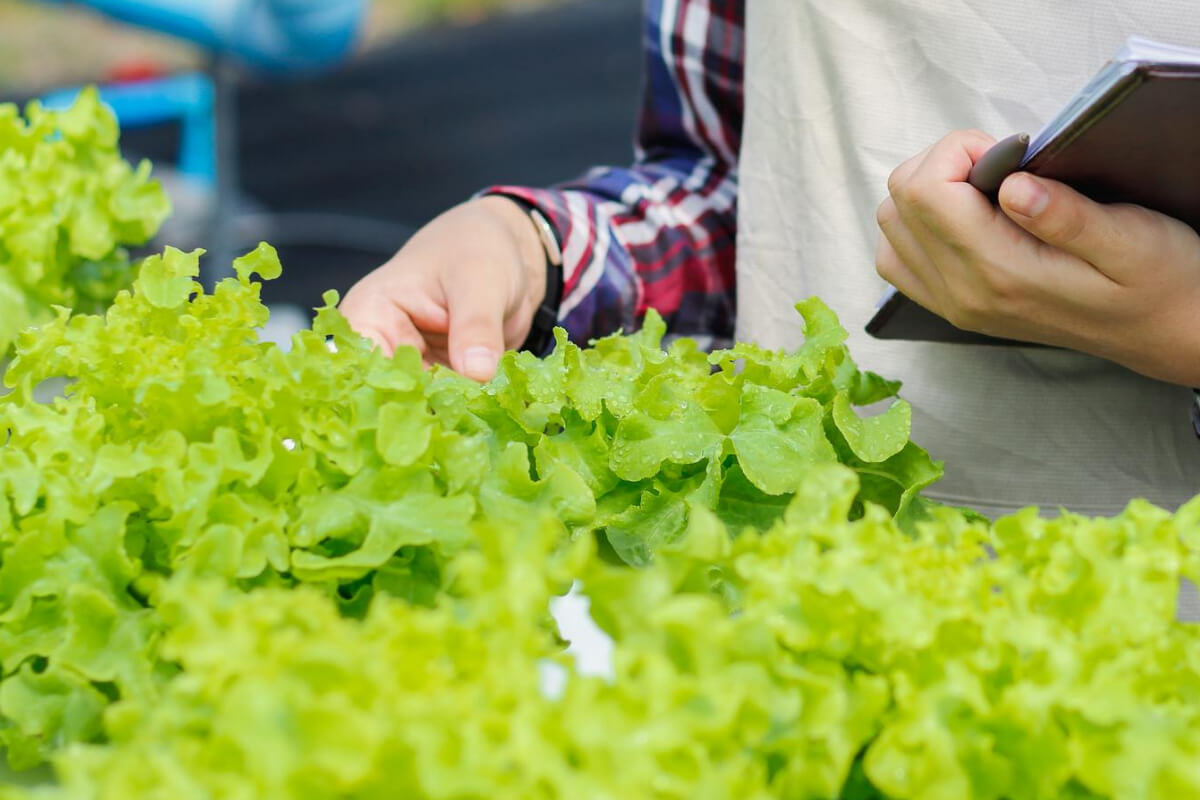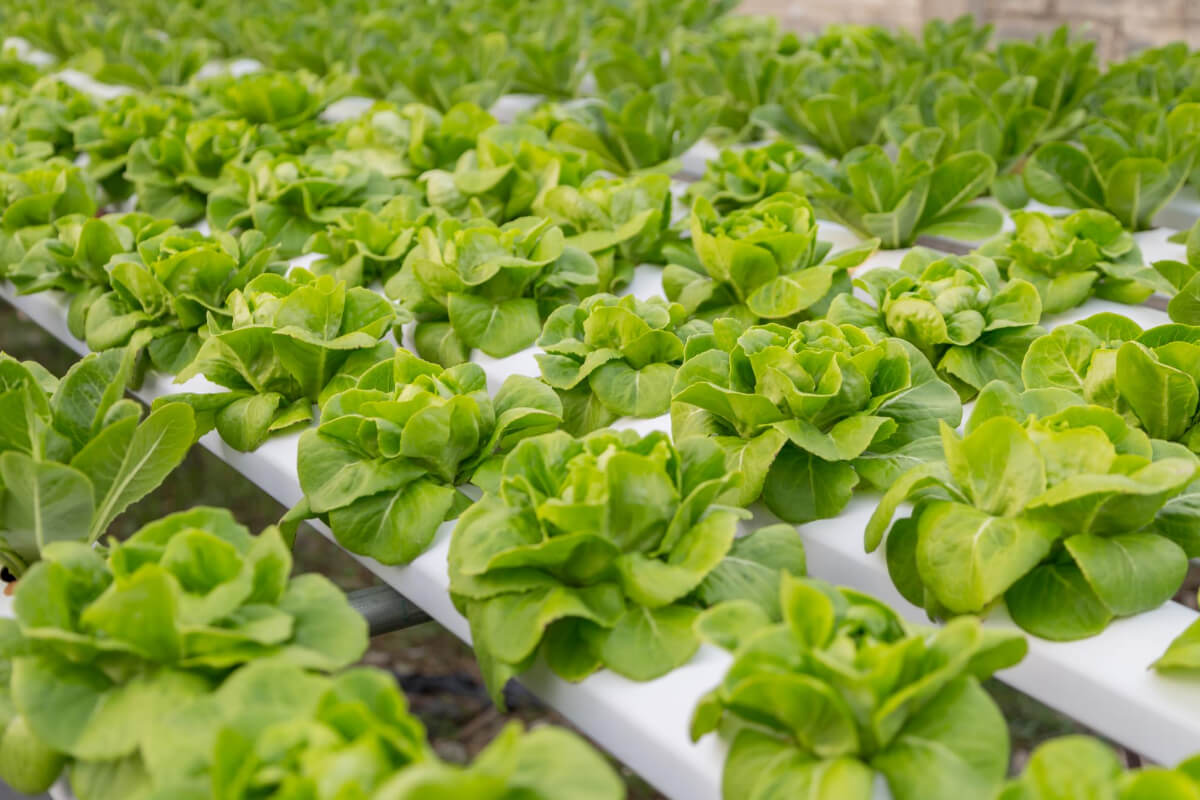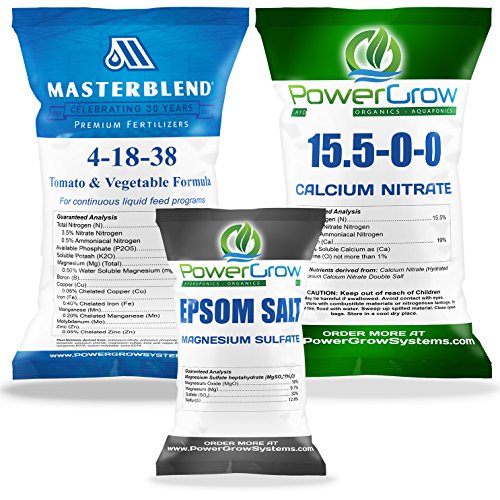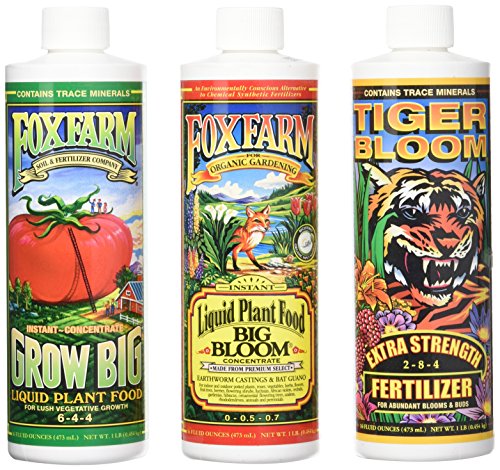With so many nutrient and fertilizer options on the market, it’s hard to know where to start, especially when choosing hydroponic nutrients for vegetables. That’s where we can help you!
In this article, we’re taking a look into the best hydroponic nutrients for vegetables. From leafy greens to juicy tomatoes, we offer suggestions for the best nutrient blend options for healthy vegetable growth.
We’ll also offer tips on how to choose the right hydroponic nutrients to maximize the crop yields from your system.
Whether you’re a seasoned hydroponic gardener or just starting out, you won’t want to miss this guide to hydroponic nutrients for vegetables. So, let’s dig in and get growing!
Best Hydroponic Nutrients for Vegetables
1. Masterblend 4-18-38 Complete Combo Kit
This Masterblend kit contains all three of the needed fertilizer blends for growing. Gardeners can use this nutrient blend for any growth stage for hydroponic vegetables.
With the Masterblend being a dry powder, it is easier to store because it does not run the risk of evaporating.
On Amazon, the customer reviews are 4.7 out of 5 stars, so there are not many bad things you can say about Masterblend. However, with it being a dry powder, some claim that it causes build-up or clogging over time.
A little bit of these nutrients go a long way, but it currently runs at $39.99, which is on the pricier side of hydroponics nutrients.
2. Fox Farm Liquid Nutrients Trio Soil Formula
This Fox Farm nutrient blend uses organic ingredients such as earthworm castings and bat guano to give the formula a full range of nutrients.
Gardeners can use Fox Farm on any hydroponic vegetable plants any time they are watered. This nutrient mix is liquid, so there is a chance of leaks and evaporation when compared to dry fertilizer mixes.
Despite this, the company has great customer service on replacing your bottles due to a leak.
Fox Farm sells many options, but one of the most popular is their three-pack of nutrient mixes. Selling their nutrients in a multi-pack allows growers to have ready and available nutrients for any stage their growing vegetables are in.
3. General Hydroponics Flora Series
This Flora series of fertilizers have three different bottles to cover you for any need during your hydroponic vegetable’s life.
Each bottle has a specific formula to meet the nutrient needs of your plants. Based on your plants’ needs, you can choose the ratios of each bottle.
Some people complain about the caps of each bottle of fertilizer. They leak easily. This can be somewhat counteracted by putting the nutrients in a box, so the nutrients do not get everywhere.
The Flora Series nutrients is another product that a little can go a long way, so as a beginner, start with a smaller dosage and work your way up.
4. General Hydroponics MaxiGro Plant Food
MaxiGro plant food is a dry concentrate of nutrients that encourages your vegetable plants to flower and fruit. This fertilizer contains primary, secondary, and micronutrients and is pH buffered. A pH buffer means that the pH will keep at a steady range.
Sometimes, dry nutrients do not work well with hydroponics, but this formula dissolves in water quickly.
If you have both soil and hydroponics plants, this would be a great option for you! This mixture can be used in both kinds of gardening.
5. General Hydroponics GH5100 Go Box
The GH5100 Go Box is a great starter box with many samples from General Hydroponics. All of the items in this box are organic. Some of the nutrients that are included in this pack are Bio Thrive, CaMg, Bio Root, Bio Weed, Bio Bud, Bio Marine, and others.
The fertilizers come in 16-ounce bottles, and the supplements come in 8-ounce bottles.
These products have great reviews besides the foul odor (which is common in organic treatments) and leaking bottles. As mentioned in previous General Hydroponics items, the leaky bottles can be put in a box to manage the leaks.
How to Choose Hydroponic Nutrients for Vegetables

1. NPK Ratio
NPK stands for the ratio of nitrogen, phosphorus, and potassium in the nutrient mixture. The number on the NPK fertilizer stands for the percentage of that specific nutrient in that ratio. It is always in the order of nitrogen, phosphorus, and potassium.
There is an ideal NPK ratio for each stage and type of hydroponic plant. For vegetables, 7-9-5 is a safe ratio. Compared to other hydroponic plants such as flowers, vegetables need more nitrogen, which will keep them the deep green color they need.
2. Organic vs Synthetic Nutrients
When deciding to grow vegetables hydroponically, there is always the question of whether or not the nutrients should be organic or synthetic.
Organic nutrients are created straight from the plant or animal source. Some examples include compost, manure, bone meal, or other completely natural materials.
Inorganic or synthetic nutrients have a few nutrients and micronutrients. The nutrients are made chemically and in a lab. Usually, they will have a high concentration of nitrogen, phosphorus, potassium, and sulfur.
There are pros and cons to each option. Vegetables grown with organic nutrients are argued to taste better and be better for you. On the other end, vegetables grown with synthetic nutrients have less of a chance to clog your hydroponics system because even the dry ingredients will dissolve quickly.
3. Liquid vs Dry Nutrients
Both liquid and dry nutrients can be used for planting vegetables hydroponically. Both do have their advantages and disadvantages.
Liquid fertilizers will mix into the water in your hydroponics system better than dry ingredients, but the nutrients will likely leak or evaporate depending on the storage location. Liquid fertilizers are also diluted more than dry nutrients.
Dry nutrients could cause build-up and clog your hydroponics unit. The build-up or clogging is fixable but is not an issue you will run into with liquid nutrients. You will also need to mix your own ratios in water for the dry nutrients. While this allows for more customization, it might be tricky for beginners in hydroponics.
4. DIY vs Store Bought Nutrients
All of the nutrients you can buy for your hydroponic vegetables on Amazon or in the store are possible to make on your own.
Some people decide to make their own to save money or to be more in control of the growth of their vegetables.
When creating your own nutrients, you only use what is necessary for your vegetables and create the exact ratios your vegetables need. Similarly, to dry nutrients, this nutrient method is advised for the more experience hydroponics growers.
More complexities for DIY nutrients, such as testing pH and electrical conductivity levels.

Hydroponic Vegetable Nutrients Final Thoughts
In conclusion, hydroponic vegetables require a specific NPK ratio to ensure they are healthy and grow properly.
When deciding on the type of nutrients to use, there are several options available such as organic, synthetic, liquid, dry, and DIY. Each option has its own advantages and disadvantages that should be taken into consideration before making a decision.
For those interested in learning more about hydroponics and the different types of nutrients available for vegetables, we recommend reading these articles:






